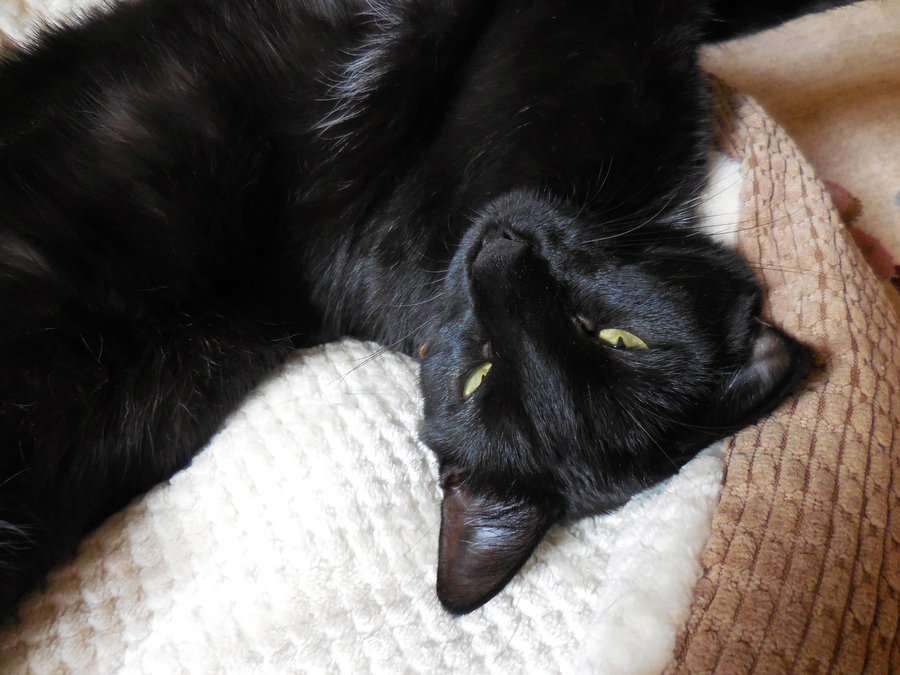- Joined
- Apr 9, 2015
- Messages
- 41
- Purraise
- 3
My cat was diagnosed with herpes after we brought him home from the shelter in March. At that time, he was really sick and needed fluids and a shot to bring down a high fever and eventually eye ointment. He gets Lysine every day.
He got better, but was always stuffy and always sometimes sneezed. Lately, he's seemed stuffier and sneezed more. He had stopped sneezing out things (sorry for TMI) like hardened mucus and thicker mucus for about a month. The other day though, he did this again though and afterward, his nose breathing got a bit less noisy. We thoroughly vacuumed and turned up our air purifier hoping it would help and he has been sneezing a little less now.
The other day, I noticed that he had one eye eeeever so slightly wider open than the other. But, I thought that maybe he was tired or whatever. He has less sneezing since we vacuumed everything, etc and the small amount of what seemed like normal eye discharge but a little more coming from both eyes that he was having when sneezing more has stopped.
This morning, I noticed that the skin around and slightly above that one eye that was a hair less opened the other day is very mildly inflamed. I only noticed it while admiring my cat's beauty up close.
My question is…are these types of mild, minor flairs to be expected in a cat with herpes? When he shows a slight increase in symptoms, does it mean we need to run off to the vet right away? I have never had a cat with herpes before. Are minor flare ups handled at home? Below is a photo of him that I took today. He was sleeping so thats why his eyes are mostly closed. The eye that you can see more of is the one with the mildly inflamed skin in the corner and above. As you can see, this isn't a major issue right now, but I have no frame of reference to know how to proceed going forward when these types of things happen.
He got better, but was always stuffy and always sometimes sneezed. Lately, he's seemed stuffier and sneezed more. He had stopped sneezing out things (sorry for TMI) like hardened mucus and thicker mucus for about a month. The other day though, he did this again though and afterward, his nose breathing got a bit less noisy. We thoroughly vacuumed and turned up our air purifier hoping it would help and he has been sneezing a little less now.
The other day, I noticed that he had one eye eeeever so slightly wider open than the other. But, I thought that maybe he was tired or whatever. He has less sneezing since we vacuumed everything, etc and the small amount of what seemed like normal eye discharge but a little more coming from both eyes that he was having when sneezing more has stopped.
This morning, I noticed that the skin around and slightly above that one eye that was a hair less opened the other day is very mildly inflamed. I only noticed it while admiring my cat's beauty up close.
My question is…are these types of mild, minor flairs to be expected in a cat with herpes? When he shows a slight increase in symptoms, does it mean we need to run off to the vet right away? I have never had a cat with herpes before. Are minor flare ups handled at home? Below is a photo of him that I took today. He was sleeping so thats why his eyes are mostly closed. The eye that you can see more of is the one with the mildly inflamed skin in the corner and above. As you can see, this isn't a major issue right now, but I have no frame of reference to know how to proceed going forward when these types of things happen.



